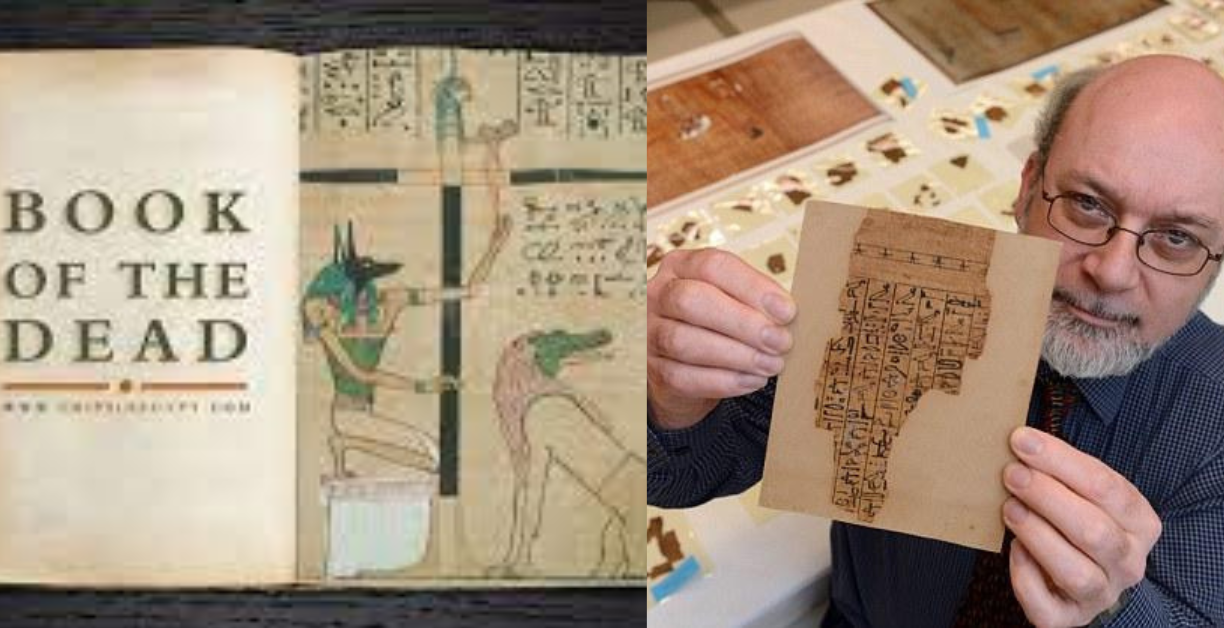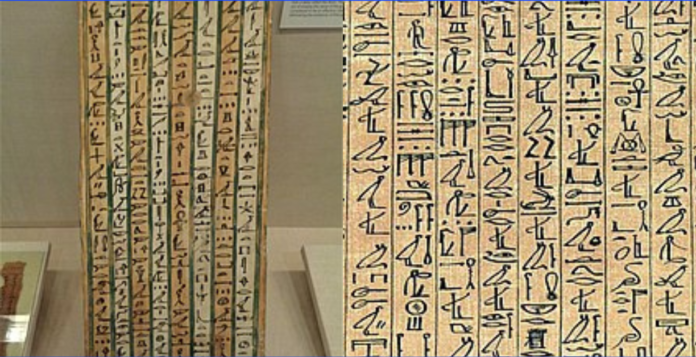Though they originate from very different cultures and eras, the book of the dead vs bible are two of the most well-known and powerful religious works in history. Below is a summary of their main distinctions and points in common:
book of the dead vs bible
History and Objective:
The Dead Book: This ancient Egyptian book was actually a collection of spells, songs, and prayers that were buried with the dead to help them on their trip to the afterlife rather than a single book.
The Bible: The Bible is a canonical collection of sacred writings that are regarded as the Jewish and Christian scriptures. It tells the story of God’s interaction with people throughout history, covering creation, the laws and commandments, and the life and teachings of Jesus Christ.
Pay Attention:
The Book of the Dead: mostly focused on planning for and overcoming the difficulties of the afterlife.
The Bible: gives a more comprehensive viewpoint and incorporates teachings on living a moral existence with creation stories, moral precepts, historical narratives, and predictions.
Organisation:
The Book of the Dead: There is no set format; spells and hymns are customised based on the beliefs and social standing of the person.
Bible: It Divided into two main sections: the Old Testament (Hebrew scriptures) and the New Testament (writings about Jesus and early Christianity). Each section is further divided into books and chapters.

Deities:
The Book of the Dead mentions a pantheon of Egyptian deities with distinct responsibilities in the afterlife, such as Osiris, Isis, and Anubis.
The New Testament presents the idea of the Trinity (Father, Son, and Holy Spirit), yet the Bible is monotheistic, acknowledging just one God.
Conduct Ethics:
The Book of the Dead: Provides extensive moral rules based on the Ten Commandments and lessons on love, forgiveness, and compassion. The Bible Provides guidance on establishing Maat (balance and justice) in the afterlife.
Comparabilities:
*On the most important issues in life, like as death and the afterlife, both texts provide counsel and consolation.
*Throughout history, both have had a significant impact on the development of several cultures and religions.
* Both academics and Christians alike are still researching and interpreting both.
Notable Differenc:
Duration: The Bible was first composed in the eighth century BCE, whereas the Book of the Dead dates to the third millennium BCE.
Intention: The Bible provides more comprehensive advice for leading a meaningful life, whereas the Book of the Dead concentrated mostly on the hereafter.
*Gods: The Bible is monotheistic, yet the Book of the Dead has a polytheistic philosophy.

*Organisation: The Bible is clearly organised, whereas the Book of the Dead is not.
Book of the dead vs bible different viewpoints on faith, the afterlife, and human existence can be found in the Bible and the Book of the Dead, two distinctive and important books. Despite their disparate beginnings, they are all aimed at offering solutions to the biggest problems in life.
A Closer Look at the Bible and Book of the Dead Comparison
The preceding synopsis is a useful beginning point, but in order to fully comprehend the distinctions and parallels between these two writings, it’s important to delve deeper into a few crucial areas:
1. Ideas about the Hereafter:
The Book of the Dead: centred on making sure the departed made it through the underworld safely, eventually arriving at Osiris’s judgement and maybe even making it into the Field of Reeds, an idyllic afterlife.
The Bible gives a variety of perspectives on the afterlife, with the New Testament providing more clarity than the Old Testament. A future resurrection and eternal life with God are alluded to in certain readings, while others point to a gloomy place known as Sheol.
2. Ethics:
* **The Book of Death:** highlights Maat, a notion that includes justice, balance, and truth. Certain rites and incantations were meant to prove the dead person’s devotion to Maat and ensure their transfer to the hereafter.
* The Bible: provides a wealth of moral precepts, the most famous of which is the Ten Commandments, which set forth obligations both religious and ethical. In order to live a moral life, the New Testament places a strong emphasis on love, forgiveness, and compassion.
**3. Historical Background:
* **The Dead Book: ** evolved over a considerable amount of time, reflecting changing Egyptian customs and beliefs about death and the afterlife. Depending on the person’s social standing and religious convictions, its contents changed.
* The Bible Written and assembled over a number of centuries, it captures the historical encounters and developing theological viewpoints of the Hebrews and early Christians. It also combines elements from neighbouring cultures and older oral traditions.
**4. Durable Impact:**
* **The Book of the Dead:** shaped Egyptian burial customs for millennia and still has an impact on how we see the beliefs and culture of the ancient Egyptians.
became the pillar of Christianity and Judaism, influencing their creeds, customs, and moral standards. It has influenced Western civilization and continues to do so in a number of areas, including law, literature, and the arts.
**5. Current Research and Interpretations:**
* **The Book of Death:** Scholars are still working to decipher its convoluted writings and grasp its subtleties. Ancient ideas continue to be clarified by new findings and interpretations.
* The Bible: The Bible is open to constant theological and literary interpretation because of its rich symbolism and depth of meaning. The way it is interpreted and debated continues to influence intellectual and religious discourse.
The book of the dead vs bible have a great influence on how people view life, death, and the hereafter, despite having somewhat different beginnings, goals, and theological teachings. Both contribute to our understanding of the human experience by providing distinctive perspectives on human beliefs and practices across cultures and historical times.















